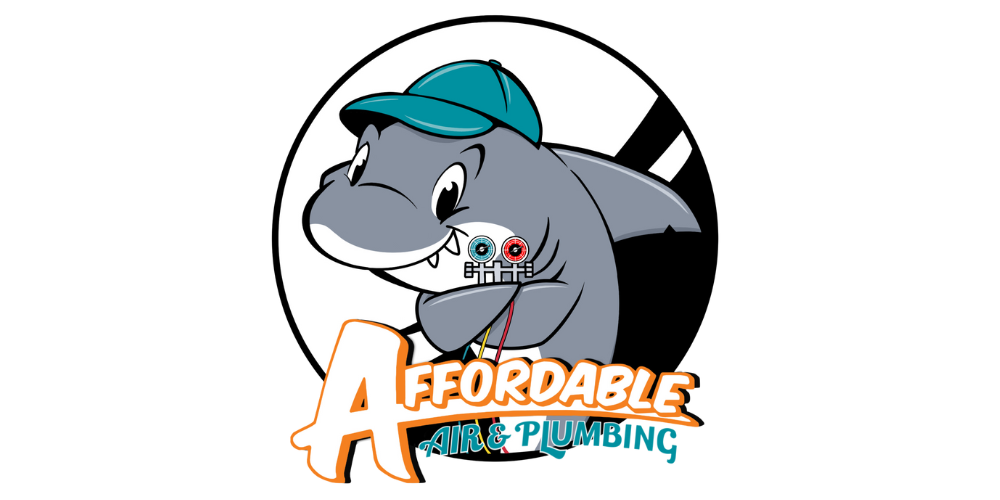Hurricane Preparedness for Plumbing and HVAC Systems in Cape Coral, Florida
Living in Cape Coral, Florida, means preparing for hurricanes is a crucial part of homeownership, especially when it comes to protecting your plumbing and HVAC systems. Hurricanes bring not only strong winds but also heavy rainfall and flooding, which can cause significant damage to these essential systems. With some proactive steps, you can help keep your home safe and functional before, during, and after the storm.
Inspect and Secure Outdoor Equipment
Before a hurricane strikes, it's important to inspect your outdoor HVAC unit and external plumbing fixtures. High winds and debris can cause severe damage to these systems.
HVAC Units: Clear away any leaves, branches, or objects around your outdoor unit that could cause damage. If possible, cover the unit with a secure, weatherproof cover. Consider bolting the unit down if it’s not already secured to a concrete pad. In flood-prone areas like Cape Coral, you may also want to raise the unit above potential floodwater levels or invest in a rooftop unit (RTU) for added protection.
Plumbing Systems: Make sure any outdoor plumbing connections are secure and free from leaks. Protect exposed pipes with insulation or covers to prevent them from being damaged in high winds.
Turn Off the Main Water Supply
If evacuation is recommended or flooding is imminent, turn off your home's main water supply. This simple step can prevent contaminated floodwaters from entering your plumbing system and reduces the risk of leaks and water damage if pipes burst.
Pro Tip: Know where your shutoff valves are and make sure they’re easily accessible. Teach family members how to turn off the water supply in case of an emergency.
Power Down the HVAC System via the Main Breaker
Before shutting down your HVAC system, it’s a good idea to cool your home significantly. Lowering the temperature can help provide comfort if power is lost for an extended period. Since the system may be off for a while before you can return to normal usage, cooling your home in advance will help maintain a comfortable environment longer.
After cooling your home, you should power down the HVAC system via the main breaker. This helps prevent electrical surges from damaging critical components during the storm. If you plan to cover your HVAC unit, remember not to turn it on while it’s covered, as this can lead to overheating or other damage.
Check Your Sump Pump and Outdoor Drains
If you have a sump pump, check that it’s functioning properly before the storm. Ensure it drains water smoothly and that no blockages are present. This can be crucial in Cape Coral, where rising floodwaters can inundate homes.
Likewise, inspect your outdoor drains to ensure they are clear of debris. Clogged drains can cause water to back up around your home, increasing the risk of flooding and water damage to your plumbing system.
Prevent Sewage Backflow
Sewage backflow can occur during heavy flooding, pushing wastewater back into your home. This is not only unsanitary but can also cause significant damage to your plumbing and flooring.
To reduce risk:
Install backwater valves if you don’t already have them. These valves allow wastewater to flow out of your home but prevent it from coming back in during flooding.
Consider sealing or capping floor drains, particularly in your basement or lower levels, to avoid floodwater entering your home through the plumbing system.
Inspect for Gas Leaks Post-Storm
If you use gas-powered appliances, such as a water heater or furnace, check for gas leaks after the storm. Damage to your system could lead to dangerous leaks. If you smell gas or suspect a leak, evacuate your home immediately and contact your gas company.
Post-Storm HVAC and Plumbing Maintenance
After the storm has passed and it’s safe to inspect your home, look for any signs of damage to your plumbing or HVAC systems. Common post-storm issues include:
Leaky or burst pipes: Check your plumbing system for cracks, leaks, or blockages caused by debris. You should be able to check hose bibs, and any pipes that are exposed such as the ones under your sink by yourself. Pipes that are underground or in your walls may need to be inspected by a Cape Coral plumber especially if you think you might have a leak.
HVAC unit damage: Inspect the unit for debris, flooding damage, or electrical issues before turning it back on. Also, remember to remove any covers before restarting your system.
Mold growth: Replace air filters and clean ducts if your system was exposed to moisture, as mold can grow rapidly in Florida’s humid conditions.
Professional Inspection After the Storm
Once the storm has passed, it’s wise to have a professional inspect your plumbing and HVAC systems. A licensed plumber and a licensed HVAC technician can:
Identify hidden damage to pipes, water heaters, and HVAC components.
Ensure your systems are running safely and efficiently.
Check for clogs or damage to your drainage systems that may have occurred during flooding.
Preventative Measures for Future Storms
Once the storm is over, it's important to plan for the future. Be sure to:
Install a sump pump if you don’t already have one, and consider a battery backup to keep it operational during power outages.
Schedule regular maintenance for both your HVAC and plumbing systems, ensuring they’re ready for whatever the next storm brings.
Conclusion: Prepare Now, Stay Safe
By preparing your plumbing and HVAC systems, you can help protect your Cape Coral home from the potential damage caused by hurricanes. Remember, a little preparation goes a long way in minimizing costly repairs and ensuring a smoother recovery after the storm.
For more detailed information on general hurricane preparedness, visit the National Oceanic and Atmospheric Administration’s Hurricane Preparedness page, which offers expert guidance on keeping your family and home safe during storm season.

